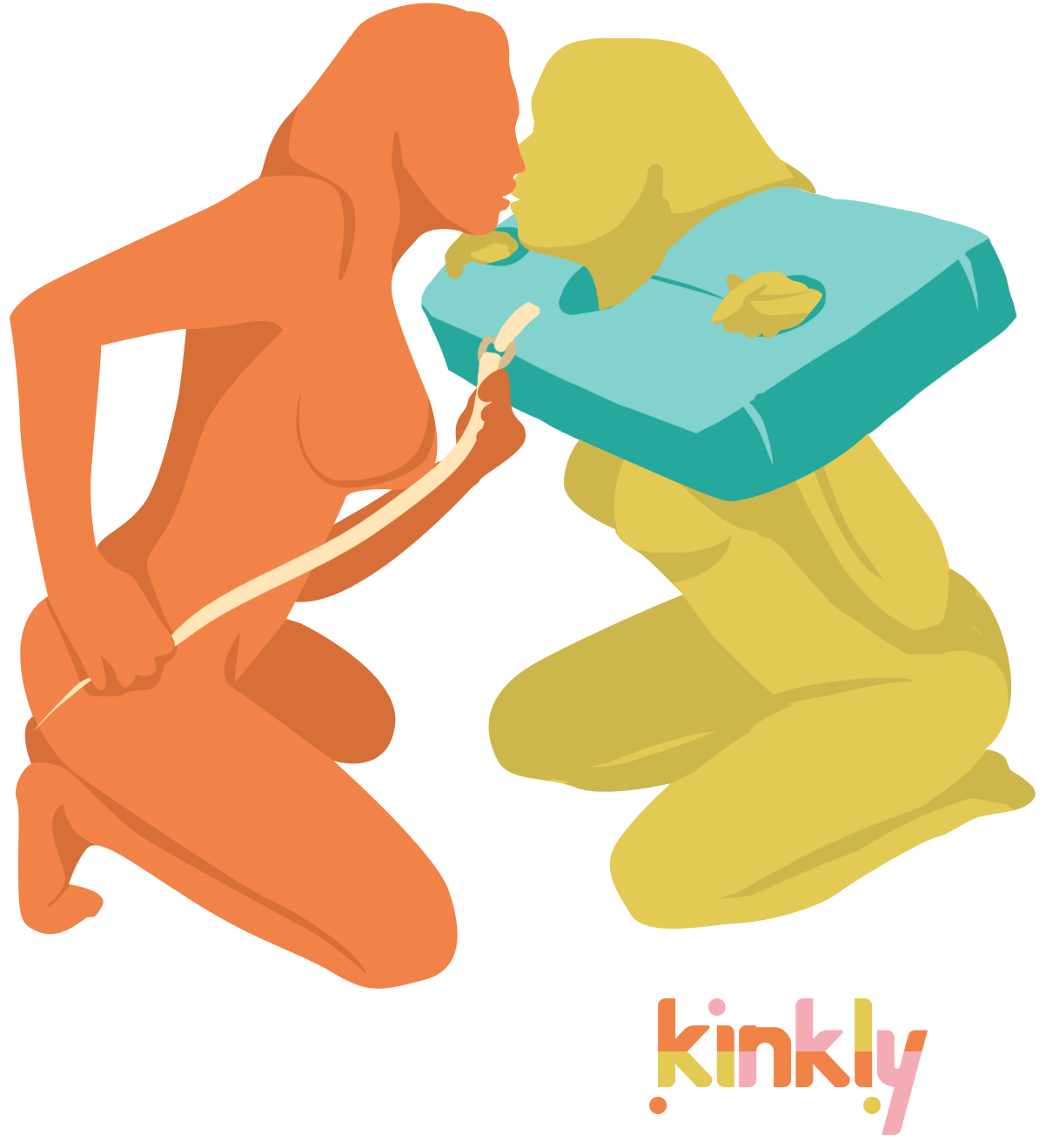When’s the last time you looked at your vulva? Not a cursory glance while you groom, but an up close and personal look, the way you might investigate your hands after a manicure.
If your answer is “never,” you are far from alone. By sheer virtue of anatomy—being more or less tucked away—it isn’t a view you can easily access. But your genitals are an important part of you and the idea that many people don’t know what they look like down there is troublesome.
Kinkly interviewed Eden Laurin from Nyssa, creators of the VieVison Leg Mirror—a mirror with a built-in light that's designed to give you a hands-free view of your vulva.
Read: The Benefits of Knowing Your Body (and Your Vulva!)
Nyssa is a company born from what the founders recognized as gaps in products (and ultimately knowledge) for people who give birth, particularly post-partum. They have a line of “fourth trimester” products, designed for use as your body heals and adjusts in the first few weeks following giving birth.
Laurin describes how the VieVision grew from there: “Very quickly, we realized how many times in life that we're going through these experiences as women, and there's either language [we don’t have], we're missing education, we're missing the understanding or ability to articulate what's going on in our bodies.”
In addition to a need for post-pregnancy comfort products, Nyssa identified a need for vulva owners to be able to see themselves: changes in their body, or identifying where exactly it is that a pain is coming from. Having this information when you go in for a doctor’s appointment can be a game changer.
I wasn't treated like a patient. And I didn't have the language.
Laurin shares the story of being told, weeks after the fact, that she had torn badly enough while giving birth to need stitches. But it wasn’t her healthcare provider that told her, it was a family member who had stayed with her in the delivery room despite being kicked out and saw. “[I had] a deep disappointment that I had stitches in my body and nobody told me, I wasn't treated like a patient. And I didn't have the language; I didn't know to ask about the stitches.”
Read: 5 Myths OB/GYNs Want You to Stop Believing About Your Vulva
This touches on the driving mandate of Nyssa: educating vulva-owners and equipping them with the language and knowledge to advocate for themselves and their bodies. Nyssa calls these issues “Unmentionables,” referring to the “hushed realities” of vulva-having bodies.
“We go through these intensely transformative times. From going through puberty, and now we're using different supplies, different materials to navigate puberty, we have to figure out how we apply them, where we put them, how we use them, you go through life, we can have cysts, and fibroids, and just a number of things that we go through, and then we could have a baby and your vulva is going to go through this massive recovery. And through all of that, we can't even see it.” Laurin explains.
We go through these intensely transformative times. And through all of that, we can't even see it.
That we can’t readily see our vulvas plays in nicely with the social construct many of us are used to of not discussing them...or anything to do with vulvas. Laurin and I joked about discussing breasts at length with our best friends, but vulvas? That is firmly in the “unmentionable” category.
Unmentionable, that is, until you bring the subject up, and the VieVision is a perfect conversation starter. Laurin is quick to point out that it isn’t just “older people” or any one group who lack the words to talk about the unmentionables. She calls it a language barrier, one that her company is aiming to smash.
“I think people often say generationally, some people are more conservative, or people who have had a different upbringing around sexual awareness. And I don't think that's accurate. I think that that's an oversimplification. I think it really is around language.”

Equipping people with the language and the space to talk about their body changes, pain, shame, or gloriousness can start with the simple act of taking the time to investigate your body with a mirror.
As anyone who spends any amount of time online is likely to know, the world is not always a welcoming and supportive place for women- or vulva-centered products or ideas. I asked about pushback or negative reactions to the VieVision. While they haven’t encountered much outright hostility, there is a bit of discomfort surrounding the topic, but it is abated with conversation.
“[Sometimes we hear] ‘Oh, man, that's, that's wild,’ because there's a lot of raised eyebrows with the VieVision. But as soon as we started having the conversation, like, ‘Well, why is it wild?’ Or ‘How would you describe your vulva?’ I'm going to say the word vulva to you several times, and then that has just become more comfortable, and then they're walking away with a mirror.”

Jen Mallia is the Managing Editor of Kinkly. Her written work has appeared in a wide range of various publications, from The Guardian, to INStyle, to Today's Parent. She prefers her Scotch neat, her feminism intersectional and her crossword puzzles to be only moderately difficult.
















